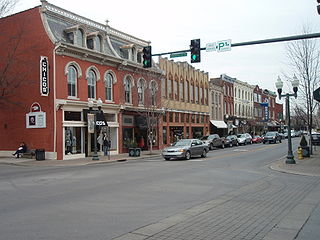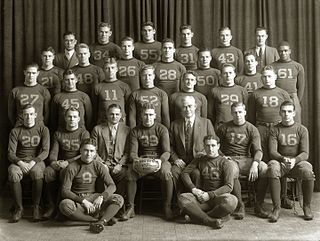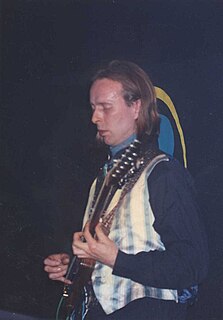
Franklin is a city in, and the county seat of, Williamson County, Tennessee, United States. About 21 miles (34 km) south of Nashville, it is one of the principal cities of the Nashville metropolitan area and Middle Tennessee. As of 2017, its estimated population was 78,321, and it is the seventh-largest city in Tennessee.

The Chicago blues is a form of blues music indigenous to Chicago, Illinois. Chicago blues is an electric blues style of urban blues. Urban blues evolved from classic blues following the Great Migration, or the Great Northern Drive, which was both forced and voluntary at times, of African Americans from the southern United States to the industrial cities of the north, such as Chicago. Big Bill Broonzy and Muddy Waters directly joined that migration, like many others, avoiding the more harsh southern Jim Crow laws. Bruce Iglauer, founder of Alligator Records stated that, "Chicago blues is the music of the industrial city, and has an industrial sense about it." Additionally, recognizing the shift in blues, Chicago blues singer and guitarist Kevin Moore expressed the blues transition stating, "You have to put some new life into it, new blood, new perspectives. You can't keep talking about mules, workin' on the levee."
Chicago blues was heavily influenced by Mississippi bluesmen who traveled to Chicago in the early 1940s. The development of blues, up to Chicago blues, is arguably as follows: Country blues, to city blues, to urban blues. Chicago blues is based on the sound of the electric guitar and the harmonica, with the harmonica played through a PA system or guitar amplifier, both heavily amplified and often to the point of distortion, and a rhythm section of drums and bass with piano depending on the song or performer.

Alex or Aleck Miller, known later in his career as Sonny Boy Williamson, was an American blues harmonica player, singer and songwriter. He was an early and influential blues harp stylist who recorded successfully in the 1950s and 1960s. Miller used various names, including Rice Miller and Little Boy Blue, before calling himself Sonny Boy Williamson, which was also the name of a popular Chicago blues singer and harmonica player. To distinguish the two, Miller has been referred to as Sonny Boy Williamson II.
John Williamson may refer to:
Joseph Arthurlin Harriott was a Jamaican jazz musician and composer, whose principal instrument was the alto saxophone.

Close to You is the eleventh studio album by American musician Frank Sinatra, accompanied by the Hollywood String Quartet.
British jazz is a form of music derived from American jazz. It reached Britain through recordings and performers who visited the country while it was a relatively new genre, soon after the end of World War I. Jazz began to be played by British musicians from the 1930s and on a widespread basis in the 1940s, often within dance bands. From the late 1940s British "modern jazz", highly influenced by American bebop, began to emerge and was led by figures such as John Dankworth and Ronnie Scott, while Ken Colyer, George Webb and Humphrey Lyttelton emphasised New Orleans, Trad jazz. From the 1960s British jazz began to develop more individual characteristics and absorb a variety of influences, including British blues, as well as European and World music influences. A number of British musicians have gained international reputations, although this form of music has remained a minority interest within the UK itself.

Robin Duncan Harry Williamson is a Scottish multi-instrumentalist musician, singer, songwriter and storyteller, who first made his name as a founding member of The Incredible String Band.

James Cassius Williamson was an American actor and later Australia's foremost theatrical manager, founding J. C. Williamson Ltd.
James Williamson may refer to:

Lieutenant-Colonel Sir Harry Calvert Williams Verney, 4th Baronet, DSO, was a British Liberal politician.

The 1932 Michigan Wolverines football team represented the University of Michigan in the 1932 Big Ten Conference football season. Under fourth-year head coach Harry Kipke, Michigan compiled a perfect 8–0 record, outscored opponents 123–12, and won both the Big Ten Conference and national championships. The defense shut out six of its eight opponents and gave up an average of only 1.6 points per game. Although there was no AP Poll to determine a national champion in 1932, the Knute K. Rockne Trophy was presented at the end of the season to the team deemed to be the national champion using the Dickinson System, a rating system developed by Frank G. Dickinson, a professor of economics of the University of Illinois. Michigan won the Rockne Trophy, edging Southern California in the Dickinson rating system.

Blue Ice is a 1992 film directed by Russell Mulcahy that stars Michael Caine and Sean Young.
George Williamson may refer to:

The 1931 Michigan Wolverines football team represented the University of Michigan in the 1931 college football season. In their third year under head coach was Harry Kipke, the Wolverines compiled a record of 8-1-1 record, outscored opponents 181 to 27, and finished the season in a three-way tie with Purdue and Northwestern for first place in the Big Ten Conference. Defensively, the team shut out eight of ten opponents, allowed an average of only 2.7 points per game, and did not allow opponents to score a point in its final six games. After losing to Ohio State on October 17, 1931, the Wolverines went 22 games and nearly three years before losing another game on October 6, 1934.
Liz Van Dort is an Australian singer who appeared on the Resurgence (UK) and Prikosnovenie (France) labels, as well as recording with artists such as Daevid Allen and contributing her vocals to film and TV soundtracks.

Tom Williamson was an English professional golfer who played in the early 20th century. Williamson finished in the top 10 in the Open Championship on six occasions. His best performance came in the 1914 Open Championship when he tied for fourth place, six shots behind the winner. With Harry Vardon he won the 1913 Sphere and Tatler Foursomes Tournament by a convincing 7 & 5 margin. He won the Midland Professional Championship seven times.
Atwood or Attwood is the surname of:












